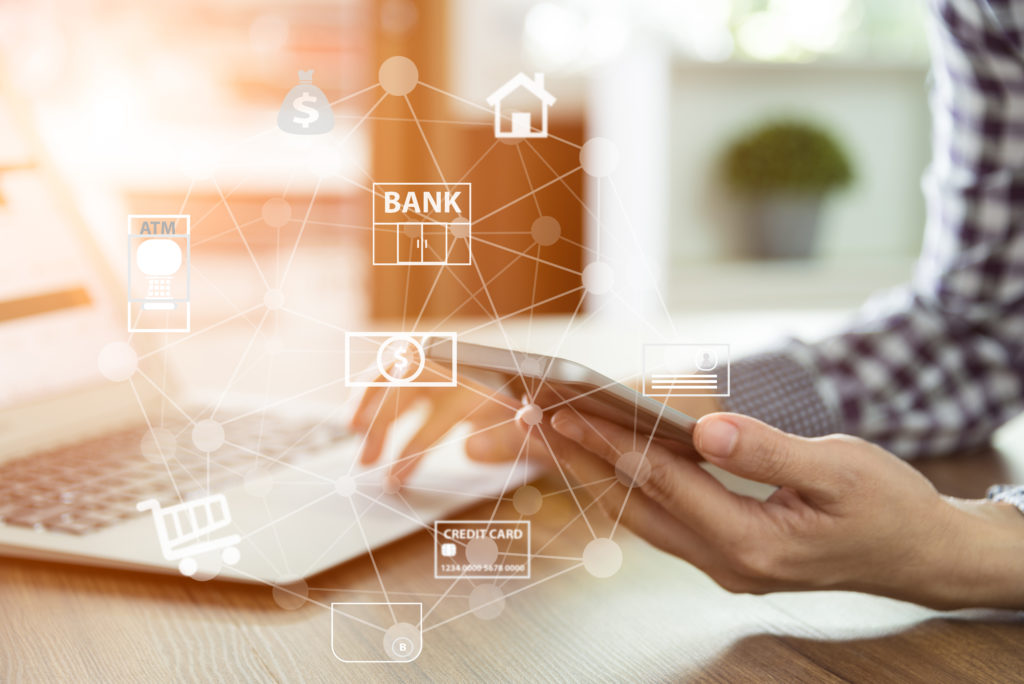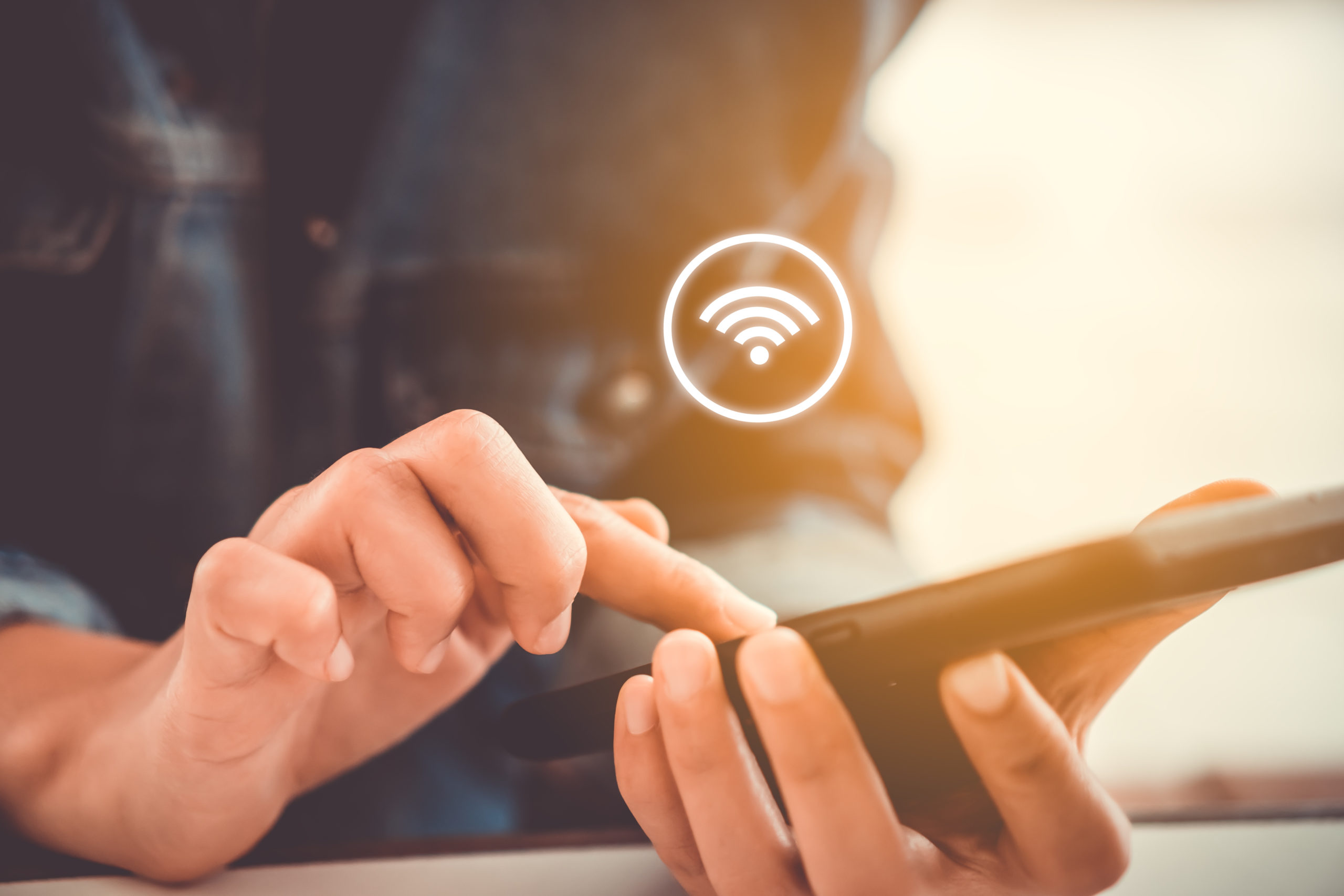Why secure online banking activities with VPN
Online bank transfer is without any doubt one of the easiest and most convenient ways to send money to a friend, family member, or partner anywhere. There is no need to manually sign a check, but the funds are available quickly and ready to be sent at any time. If you regularly do online bank transfers, consider using a VPN to secure your transactions.

Do you know how to protect your Internet data?
Opening a private browsing window to protect your personal Internet data or circumventing the limits imposed by your geographical location are simply not enough. The best solution is still to go through a VPN to protect your online activities.
The acronym VPN stands for Virtual Private Network. Behind these terms, a technology making it possible to secure your activity on the Internet is well hidden. How? By establishing a connection tunnel, most often encrypted, between your computer and a Web server located somewhere in the world, the idea being to virtually relocate your connection. The result: you change your IP address and hide your location from anyone who intercepts your traffic.
Typically, a VPN is used to bypass digital censorship and prevent third parties from collecting personal information from your internet activity. Common practices in countries like Russia.
Bank transfers: practical but not secure enough
Do you regularly use a VPN for your online banking? If not, you should, and today’s article will show you why. Your personal banking data has never been more risky, so our purpose here is to show you some of the best practices to further secure your online banking account.
When making an online bank transfer all you need is the recipient’s personal information. They are essential for the transfer order that you should provide to your banker. Nothing complicated then, everything is done in a few clicks! However, be aware that since the Internet is not secure, all operations carried out over this public network are also easily exploited by hackers. Current technologies allow banks to protect their customers’ data by using https protocols for their site, but unfortunately this is not enough. For optimal protection, it is recommended to use a secure VPN that will encrypt all incoming and outgoing data from your computer or connected mobile device.
Before, banks were a face-to-face experience. If you wanted to make a deposit or chat with customer service, you had to find a branch and stand in line. Over the years, web technology has gained ground and basic guarantees have improved, so online banking has begun to take hold. Mobile devices and browser account access have quickly become the preferred way to interact with your bank. Now, if you want to deposit a paycheck or check your balance, all you must do is log into your account online.
Although banks deploy a number of strict security measures to keep your data safe, they cannot protect themselves against all threats. This is where VPNs come in. Using a VPN while banking online can stop all kinds of attacks, including attempted identity theft.
Free VPN or paid VPN
Let’s get it straight: you should never use a free VPN service with an online bank. Never. Free VPNs are renowned for collecting and selling user data, often going so far as to inject ads into browsers and apps. If you sign in to any of those free VPN services that you see in mobile marketplaces, it is possible that they will collect all of your information, including banking information, and pass it on to the highest bidder. After all, you don’t pay them, so they must be making money somehow.
Using a reliable VPN service means that you are no longer the product, you are a customer. Paid VPNs have every reason to protect your data instead of saving it or selling it to third parties. They’re also faster than free VPNs and don’t impose any bandwidth or file type limitations on users. And they’re remarkably inexpensive, too.
Five reasons to secure online banking activities with a VPN
Still not sure why you should bother with a VPN? We’ve rounded up some of the best reasons to have a virtual private network and keep it active while banking online. This way you will keep an extra layer of protection by having security protocols.
1. Your information is always safe
Banks use HTTPS encryption to send and receive data from online accounts. This is a good thing, but it does not guarantee privacy, even on your home network. Running a VPN while you’re connected adds a secondary layer of encryption to your transactions, one that can’t be broken by your ISP, your bank, or even talented hackers. It’s like creating a private tunnel to the Internet that only you can use, so your bank details and sensitive data are protected.
2. Your banking app will remain safe
Do you prefer to do your banking online using an app? Cell phones are popular targets for hackers and malware, mostly because the platform is easier to access than a desktop computer. Banking apps typically encrypt the data itself before it is sent from your phone, but by running a VPN in the background, you can ensure that nothing is left unprotected no matter what.
3. You can connect from a public Wi-Fi network
Have you ever accessed your bank account from a public access point? You shouldn’t have, because this is one of the biggest sources of account opening. Public Wi-Fi is a hotbed of hacking. Most people do not pay attention to the security of their portable devices when they are in a cafe, hotel or restaurant. They check their email and enter their credit card details as if they were at home. In the absence of a VPN, this data is sent unencrypted over the web, allowing anyone with the right software to use it against you.
VPNs and their encryption capabilities make it possible to safely use public Wi-Fi again. Once the apps are installed and active on your laptop or smartphone, you can check your online banking account, access your emails, or even make purchases without worrying about your information being compromised.
4. You can access your account while you are traveling
Banks are generally very sensitive to accessing accounts outside of your home country. Most online services monitor IP addresses that connect throughout the day, comparing them to the addresses of account holders to detect stolen details and other forms of fraud. This can cause some problems if you travel frequently outside the country. Simply crossing the border and accessing your account from a new Wi-Fi network or cell phone tower can trigger these fraud blocks.
A VPN with servers in your home country can help prevent such situations. Online banks usually don’t check if you’re using a VPN. If you are traveling and entering a new region, simply change the VPN servers to a server located in your home country. The next time you log in, it will be like sitting on your couch checking your bank balance.
5. Some VPNs protect against phishing
Phishing attacks are methods used by hackers to attempt to recover account usernames and passwords. They work by replacing a requested website with fake forms, often going so far as to create an exact copy of the look of your online banking account. It is generally up to the user to avoid phishing scams. Always check the URL before entering details and make sure the green HTTPS lock icon in your browser is enabled. VPNs often help protect against phishing attacks, too, by providing DNS-level scanning to prevent hackers.
Disadvantages of VPNs and Online Banking
Using a VPN almost always means more features, better access and private internet access. It is important to use them for daily browsing as well as for sensitive activities like online banking. There are, however, a few minor drawbacks you might encounter. Below are some common drawbacks along with some quick workarounds.
Access outside the country
Using a VPN protocol means changing your local IP address to an address that could be in another country. If you are in the United States, for example, but find faster connections to servers in Canada, the websites you visit will believe you are in Canada. The same goes for online banking. Logging into your account shares the IP address currently associated with your device, forcing the bank to believe that you have left the country. This could trigger a number of fraud reports in the service’s security system, as access from abroad often means your account has been compromised. In the worst case, your bank may prohibit you from connecting from certain countries.
However, even if IP addresses from overseas are causing a problem with your bank, there is usually an easy fix. You can start by using a VPN with servers in your own country, which should generally be faster than long distance servers, anyway. Otherwise, contact your bank and tell them you use a VPN or travel frequently. These two explanations may allow them to temporarily suspend protection against access fraud abroad. Keep in mind that in this case, if your account is indeed compromised, you may be more vulnerable.
VPN prohibited
Some banks have started banning VPNs altogether. This practice is not extremely common and does not apply to all VPNs, but users have encountered temporary access blocks when trying to connect. You can quickly remedy this problem by disabling your VPN and reconnecting, or by calling the bank’s hotline and notifying them of the problem.

Best VPN for Online Banking
It is never easy to stay secure when accessing your account online. Even using a VPN does not guarantee your privacy. Choosing a reliable and respected service is essential to keeping your data safe no matter what. We offer the best VPN which can provide the best online banking experience. VuzeVPN is fast, secure, easy to use, and reliable, making VPN clients rest assured we have their back.
VPN for Bitcoin
Bitcoin is a popular method for doing online transactions around the world. This cryptocurrency allows financial exchanges between the computers of two users, creating what is described as a “peer-to-peer electronic payment system”. Bitcoin has no central authority or intermediary, which gives users more control over their financial transactions.
All transactions are recorded in a distributed ledger called a “blockchain”, which is publicly available and in the possession of all users. Bitcoin is popular because it helps avoid fees, random fluctuations in exchange rates, and maintains a certain degree of privacy. But Bitcoin is not completely anonymous. The Bitcoin ledger is a collection of public information, and if your Bitcoin address is linked to your identity, all of your transactions will be known to outsiders, governments, and all hackers.
How does a VPN provide security for Bitcoin
Hide your IP
If your IP address is revealed during a Bitcoin transaction, you can be identified and your location could be discovered. But, if you’re active behind a VPN, your IP address is completely anonymous – meaning it can’t be traced back to you.
Encryption and browsing anonymously
Having VPN protection encrypts all your online traffic, preventing your passwords and session cookies from falling into the wrong hands.
Our conclusion
VPNs are amazing tools that have transformed the way we access the internet on a daily basis. They restore privacy on the web, they open the door to location variability, and they secure sensitive information so that we can fearlessly check our bank or email balances. In short, using a reliable, paid VPN service can improve all aspects of your online world. So you should choose a VPN.

